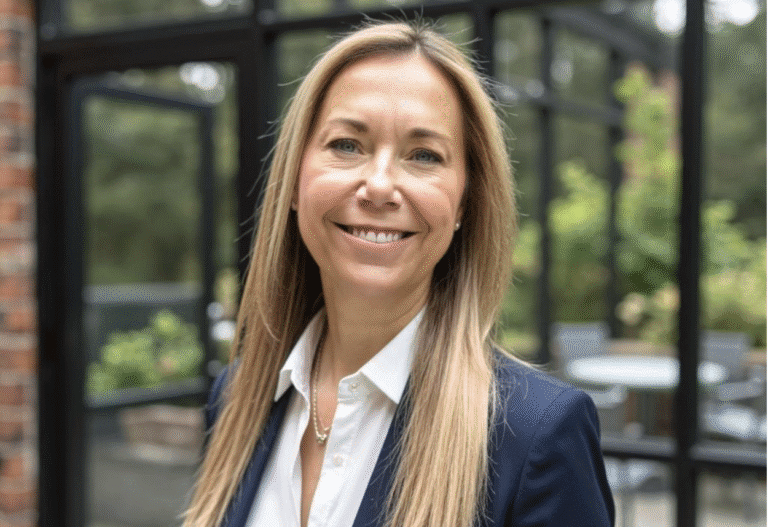Virginie Costa has built a career at the center of some of the world’s most influential consumer brands. With nearly three decades of financial and operational leadership across luxury, beauty, and food, she has become a distinctive voice on how companies can scale globally with both discipline and empathy. Her experience spans senior roles at Hermes, Burberry, Godiva, Wella, and Mondelez International, where she served as North America CFO for an $11 billion dollar business.
Across every chapter of her career, one theme anchors her approach: global expansion succeeds only when financial strategy works in tandem with cultural intelligence, which she calls “the ability to read, respect and adapt to different cultural contexts.” It shapes how people think, how they make decisions, how they build trust, and how they engage with brands. “You could have the best financial model, but without the cultural intelligence, you will misread the consumer motivations and the consumer decisions,” says Costa.
Understanding Cultural Intelligence as a Business Imperative
Her time at Hermes and Burberry are powerful illustrations of how this plays out in practice. Luxury consumers in Tokyo shop with different motivations than those in Paris or New York, but each group still expects the brand to feel unmistakably itself. The challenge is striking the right balance between consistency and local relevance, providing “a consistent experience, but tailoring also to the local context and needs.” In this way, cultural insight becomes the link between a company’s strategic intentions and the day-to-day execution that earns trust and builds loyalty. “Local teams have a very important voice because they are the one facing the consumer,” she says. They notice reactions, listen to feedback in real time, and organically understand the nuances that data alone cannot capture. Costa herself still travels regularly to meet regional teams, saying that direct exposure to consumers sharpens her own decision-making as a CFO.
Financial Strategy Grounded in Human Insight
Costa’s framework for global expansion begins with aligning capital allocation, consumer insight, and local empowerment. At Mondelez, home to iconic brands such as Oreo, Ritz, Toblerone, and Godiva, growth emerged “where consumer emotional connection and purchasing power intersected, not just where the margins are looking the highest.” Financial strategy provides clarity on returns and cash flows, but cultural understanding ensures those investments resonate.
She views this dual focus as essential to shaping pricing architectures, retail formats, and incentive structures for each market. Without that alignment, the business risks becoming efficient but irrelevant. For Costa, true success lies in achieving “local resonance with global coherence,” a blend she has seen executed particularly well at Hermes and Wella. These brands maintain unwavering brand DNA while giving local teams the freedom to interpret and express it in ways that feel authentic. She views local teams as co-creators, and believes empowerment at the edge unlocks both performance and innovation. When guided by the right financial guardrails, local leaders become stewards of the brand’s growth rather than simply operators of a playbook.
The CFO as Brand Steward and Integrator
Costa’s perspective reflects a broader shift in the CFO role. “Nowadays we are not just gatekeepers. We are also architects of the brand.” In her own work, she sees herself as a brand steward, responsible for ensuring that every financial decision supports the company’s purpose and values. This stewardship is especially important for organizations operating across more than 100 countries. Standardization of core systems creates shared visibility, but flexibility in assortments, promotional levers, and supplier terms keeps the business competitive. This “controlled flexibility” is a model that combines scalable processes with room for local interpretation.
Looking ahead, she believes CFOs will serve as translators between global ambitions and local realities. Data will remain essential, but not for reporting alone. The value, she says, comes from uncovering behavioral patterns that inform capital allocation decisions and highlight culturally resonant opportunities. “Ultimately, the CFO becomes the economic and cultural integrator of the enterprise.”
Sustainable and Human-Centered Global Growth
In her view, profitable growth cannot be separated from purpose, authenticity, and connection. This belief has guided her through global transformations, multi-billion-dollar restructurings, strategic carve-outs, and the repositioning of iconic brands. “CFOs today are driving the business and having a positive impact,” Costa says. Her work shows that financial leadership, when paired with cultural intelligence, can do more than strengthen margins. It can build brands that truly resonate across continents.
You can connect with Virginie Costa on LinkedIn or visit her website.




